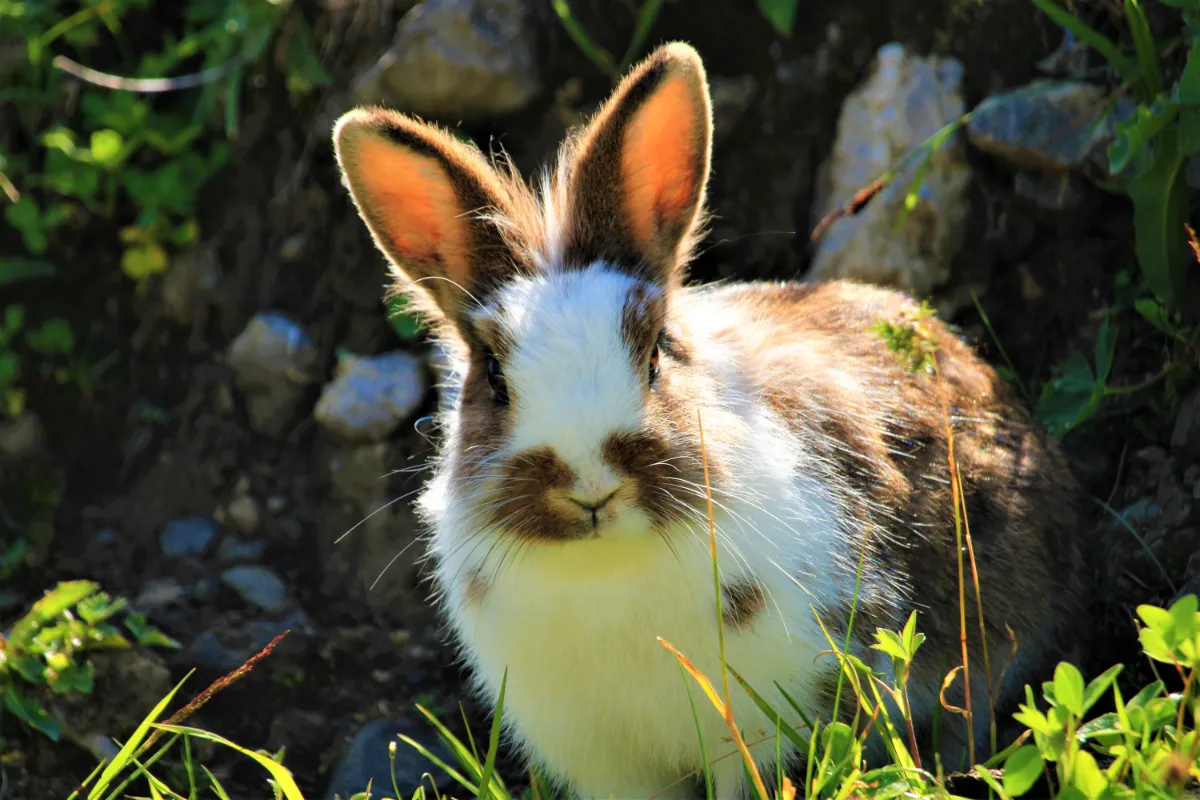Do you ever wonder if your furry friend can have allergies too? Well, the answer might surprise you. Believe it or not, rabbits can indeed have allergies just like humans!
In this article, we will explore the common allergens that can affect rabbits, the signs and symptoms to look out for, how to diagnose allergies in rabbits, and the various ways to manage and treat them.
So, let’s dive into the world of rabbit allergies and ensure your little companion stays happy and healthy!
In This Article
Key Takeaways
- Common allergens for rabbits include dust, pollen, certain types of hay, certain foods, and cleaning products or chemicals used in their environment.
- Signs and symptoms of allergies in rabbits include sneezing, itching, watery eyes, runny nose, and irritated skin.
- Diagnosing allergies in rabbits may require observation of reactions and changes in behavior or physical symptoms, allergy testing, and consultation with a veterinarian who specializes in exotic pets.
- Managing rabbit allergies involves implementing environmental changes, removing potential allergens from their environment, keeping the living area clean and free of dust, mold, and pollen, avoiding scented products, and ensuring a balanced and nutritious diet.
Common Allergens for Rabbits
Do you know what some common allergens for rabbits are?
It’s important to be aware of these allergens if you have a pet rabbit, especially if you want to provide the best care for them. Different rabbit breeds may have varying sensitivities to certain allergens, so it’s crucial to observe your rabbit’s reactions and make adjustments accordingly.
Some common allergens for rabbits include dust, pollen, certain types of hay, and even certain foods. It’s also important to note that rabbits can develop allergies to certain cleaning products or chemicals used in their environment.
If your rabbit does have allergies, there are natural remedies available that can help alleviate their symptoms. These remedies can range from using hypoallergenic bedding to providing them with a balanced diet and ensuring proper ventilation in their living space.
Signs and Symptoms of Allergies in Rabbits
If your rabbit is experiencing sneezing or itching, and has watery eyes or a runny nose, it may be a sign that they’ve allergies. Allergies in rabbits can be caused by various factors such as dust, pollen, certain foods, or even certain types of bedding.
To determine the specific allergen causing your rabbit’s symptoms, allergy testing may be necessary. This involves exposing your rabbit to different potential allergens and monitoring their reactions. Allergic reactions in rabbits can range from mild to severe, and it’s important to address them promptly to ensure your rabbit’s comfort and well-being.
If you suspect that your rabbit has allergies, consult with a veterinarian who specializes in exotic pets. They can provide guidance on allergy testing and recommend appropriate treatments to alleviate your rabbit’s symptoms.
Diagnosing Allergies in Rabbits
To accurately diagnose allergies in your rabbit, you can observe their reactions and note any changes in behavior or physical symptoms. Allergies in rabbits can manifest in various ways, so it’s important to be vigilant.
Here are some common allergens for rabbits that you should be aware of:
- Environmental Allergens:
- Pollen from plants and flowers
- Dust mites and mold spores
- Food Allergens:
- Certain types of hay or grass
- Fruits or vegetables that your rabbit may be sensitive to
By closely monitoring your rabbit’s reactions to these allergens, you can identify any patterns or triggers. Look out for symptoms such as excessive scratching, sneezing, watery eyes, or respiratory problems.
Keep a diary of these observations and share them with your veterinarian for a more accurate diagnosis. Remember, your rabbit’s health and well-being are paramount, so stay proactive in identifying and managing their allergies.
Managing Allergies in Rabbits
You can effectively manage allergies in rabbits by implementing a combination of environmental changes and dietary adjustments.
Allergies in rabbits can manifest as respiratory issues, skin irritations, or digestive problems. To prevent rabbit allergies, it’s important to identify and remove potential allergens from their environment. This includes keeping their living area clean and free of dust, mold, and pollen.
Additionally, avoid using scented products, such as candles or air fresheners, as these can also trigger allergies. In terms of diet, ensure that your rabbit is eating a balanced and nutritious diet that’s free from common allergens. Consult with a veterinarian to determine which foods are safe for your rabbit and which ones should be avoided.
It’s also important to note that allergies in rabbits may be indicative of allergies in other pets, so it’s crucial to address these issues promptly to ensure the well-being of all your furry companions.
Treatment Options for Rabbit Allergies
Have you considered using antihistamines to alleviate symptoms of rabbit allergies? Allergies can be a real challenge, especially when they affect our furry friends. If you’re looking for ways to help your rabbit feel more comfortable, natural remedies and antihistamine medications are worth considering.
Here are some options to explore:
- Natural remedies:
- Regular cleaning: Keep your rabbit’s living space clean and free from allergens like dust and dander.
- Air purifiers: These can help remove allergens from the air, providing relief for both you and your rabbit.
- Antihistamine medications:
- Over-the-counter options: Consult with a veterinarian to find the right antihistamine medication for your rabbit.
- Prescription medications: In some cases, your veterinarian may prescribe a stronger antihistamine to effectively manage your rabbit’s allergies.
Frequently Asked Questions
Can Rabbits Have Seasonal Allergies?
Yes, rabbits can have seasonal allergies. Common symptoms include sneezing, itchy skin, and watery eyes. To manage these allergies, keep your rabbit’s living environment clean, minimize exposure to allergens, and consult a veterinarian for proper treatment.
Are Certain Rabbit Breeds More Prone to Allergies?
Certain rabbit breeds may be more prone to allergies due to genetic factors. Allergy symptoms in rabbits can include sneezing, itching, and respiratory issues. Factors like environment, diet, and exposure to allergens can contribute to allergies in rabbits.
Can Rabbits Develop Allergies Over Time?
Over time, rabbits can develop allergies. Common symptoms include sneezing, itching, and watery eyes. To manage and prevent allergies, keep their living environment clean, avoid potential allergens, and consult a veterinarian for proper treatment.
Are There Any Natural Remedies for Rabbit Allergies?
You can find relief for rabbit allergies by exploring natural remedies like herbal and homeopathic treatments. These alternatives can offer a gentler approach to alleviate your rabbit’s allergic reactions.
Can Allergies in Rabbits Be Passed on to Their Offspring?
Allergies in rabbits can be inherited and have effects on reproduction. It’s important to consider the genetic background of rabbits when breeding to minimize the risk of passing on allergies to their offspring.
Conclusion
In conclusion, rabbits can indeed have allergies. It’s important for rabbit owners to be aware of common allergens and the signs and symptoms of allergies in rabbits.
One interesting statistic to note is that approximately 10% of rabbits develop allergies at some point in their lives.
By staying knowledgeable and detail-oriented, rabbit owners can effectively manage and treat allergies in their furry friends, ensuring their health and well-being.





